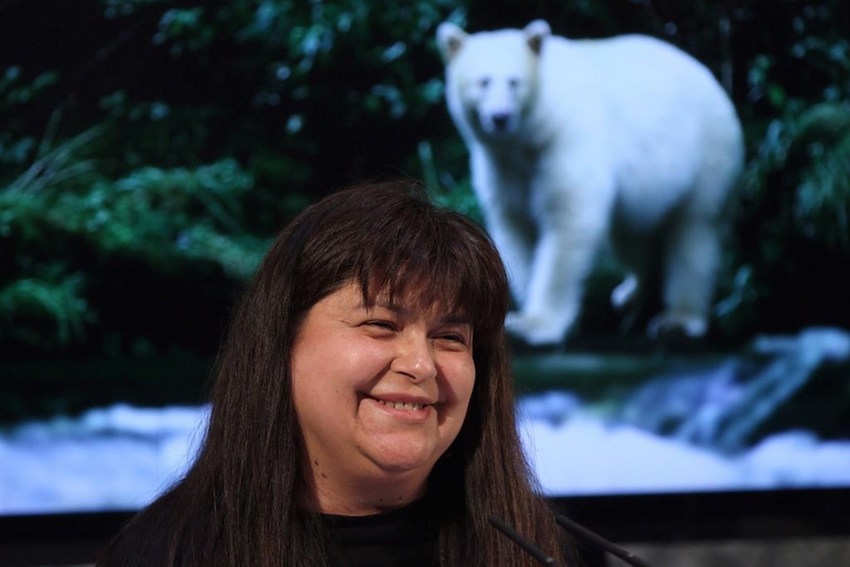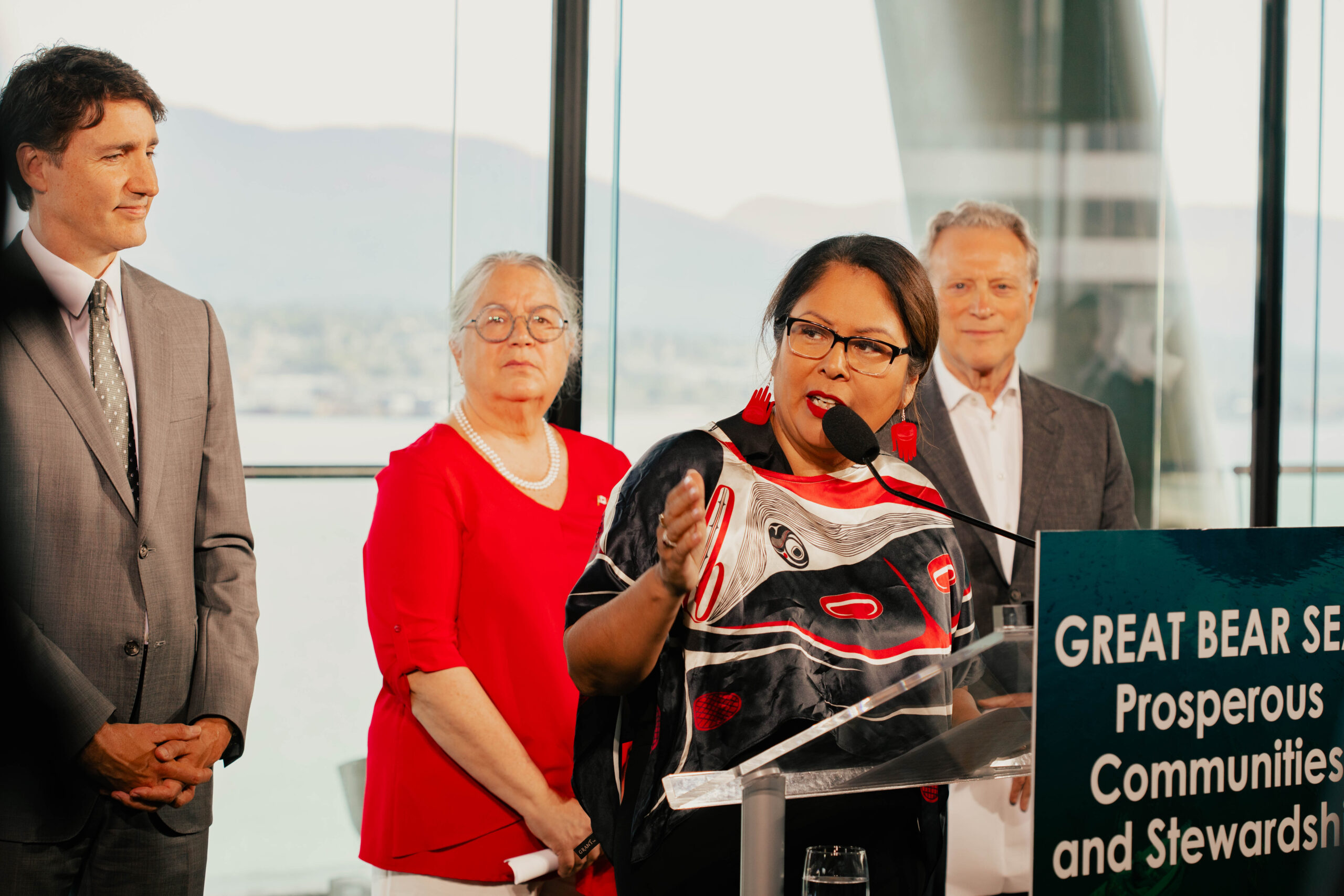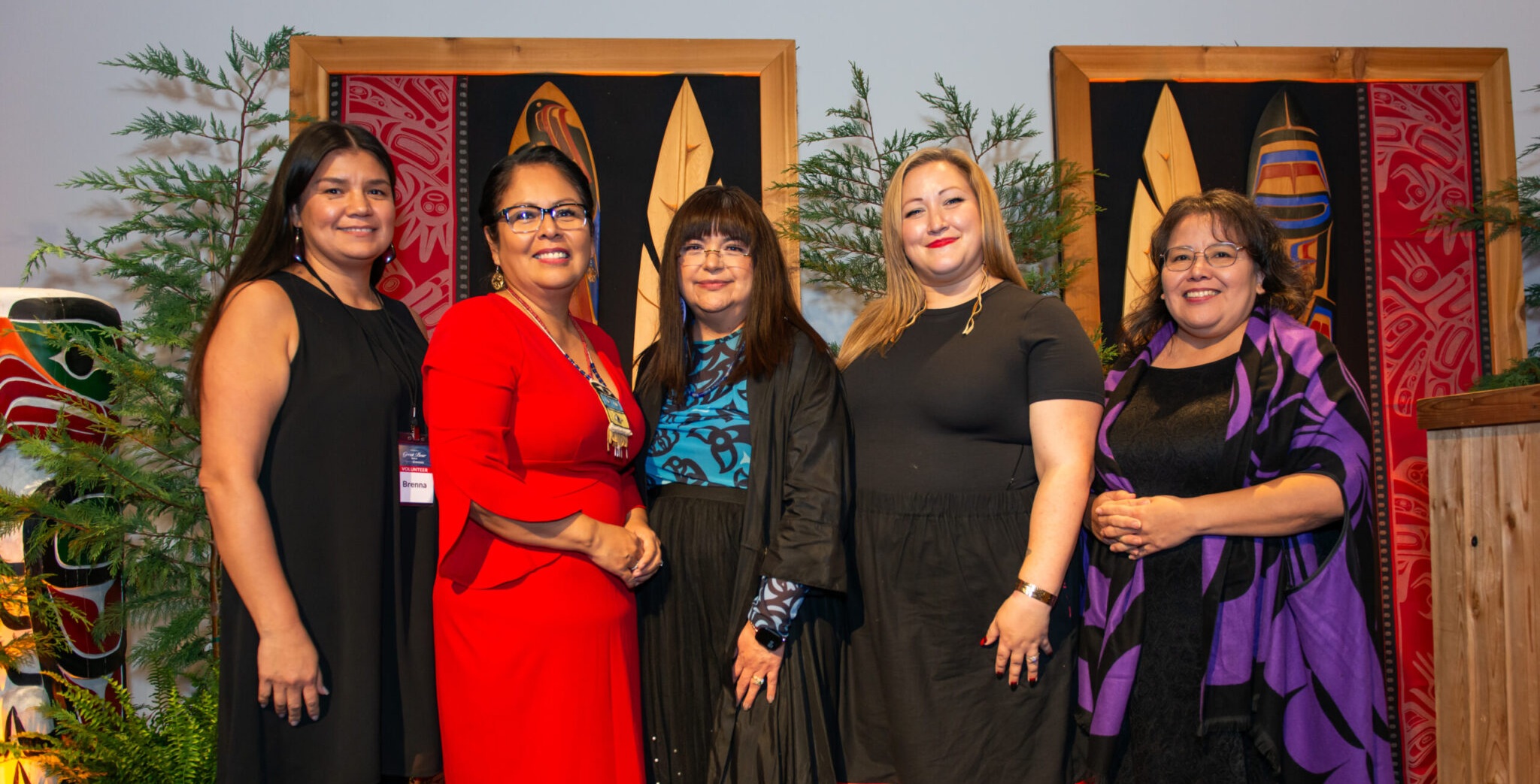In this opinion article for the Vancouver Sun, Heiltsuk Chief Marilyn Slett, President of Coastal First Nations, describes the progress made so far toward rebuilding a healthy coastal economy.
Coastal First Nations — Great Bear Initiative (CFN) was established to help create a turning point in the environmental and economic relationship between First Nations and non-indigenous society.
What progress has been made over this period?
Today, the question of our aboriginal rights and title are clearer than ever before. The power comes from our people and communities and the responsibility to maintain and protect the lands, water and resources within traditional territories.
We have strengthened the connections between our communities, our environment, and our economy. Coastal First Nations support the re-emergence of a conservation-based economy while taking into account the cultural and ecological diversity of our territories.
Our communities led the campaign to protect the Great Bear Rainforest and plans are well advanced to similarly protect the ocean environment from northern Vancouver Island to Alaska.
Each of the First Nations have stewardship staff and guardian watchmen who are working to protect our land, waters, cultural sites and resources. They are doing it by working with the governments of Canada and B.C. to monitor compliance with laws and regulations, and through Indigenous laws. Most importantly, as both Canada and B.C. have reduced staff in field offices, it is the First Nations staff who are interacting with the public, educating them and doing the front-line monitoring of our waters and our lands.
Ending the trophy bear hunt, protecting whales, counting salmon escapements and monitoring water levels are all part of an ecosystem-based management system that our First Nations have championed.
We have created a shellfish corporation that has worked hard to build a scallop aquaculture industry. The goal is that several more communities will have grow-out sites in their territories.
Having saved trees in the Great Bear Rainforest, several communities have established an essential oils company that only uses sustainably harvested conifer boughs. They have successfully test marketed oils that can be used in aromatherapy, perfumery and personal body products.
Working with all of its communities, CFN is a leader in carbon offset protocols and sales. Indeed a good portion of First Nations stewardship departments are paid for by the revenue generated through offset sales. In a carbon conscious world, there is tremendous opportunity for future sales.
Our modeling indicates that between the member Nations, we need to create almost 5,000 new jobs between today and 2038. We will be both strategic and forward-looking as we move forward with this ambitious goal.
CFN communities are supporters of clean and renewable energy in a climate-changing world. We are working to reduce dependency on fossil fuels, manage community energy demand, increase clean energy opportunities, and increase reliability of electricity in communities.
There has never been a more important time for conservation in British Columbia. We are working closely with the Federal and Provincial governments as we build a culturally, ecologically and economically sustainable coast.
Canada is committed to reconciliation and new comprehensive fish and fisheries and ocean management framework agreements are being negotiated.
Similarly, we have developed a positive working relationship with the province. In 2009, we signed a “reconciliation protocol” with B.C. The new B.C. NDP government through its mandate letters to ministers is giving every indication that reconciliation with First Nations is an accountability measure it is prepared to be judged upon.
But the real credit goes to our communities and our leadership. We are still here and absolutely stronger; populations have grown, and community services have improved. Now the task is to make advances on training and education, to develop governmental capacity and have good jobs for the next generation.
Chief Marilyn Slett is president of Coastal First Nations.


